How Western hygiene standards are seen in other parts of the world
Categories: Fashion | Nations | North America | Science | Society | Water | World
By Pictolic https://pictolic.com/article/how-western-hygiene-standards-are-seen-in-other-parts-of-the-world.htmlFor the population of Europe, Australia and the two Americas, the use of a toilet bowl and toilet paper, as well as bathing in the shower are standard sanitary procedures. But, from the point of view of residents of many countries of the world, all this seems exotic and has no reasonable explanation. And yet, these perplexed people are in the majority, as it does not sound strange.
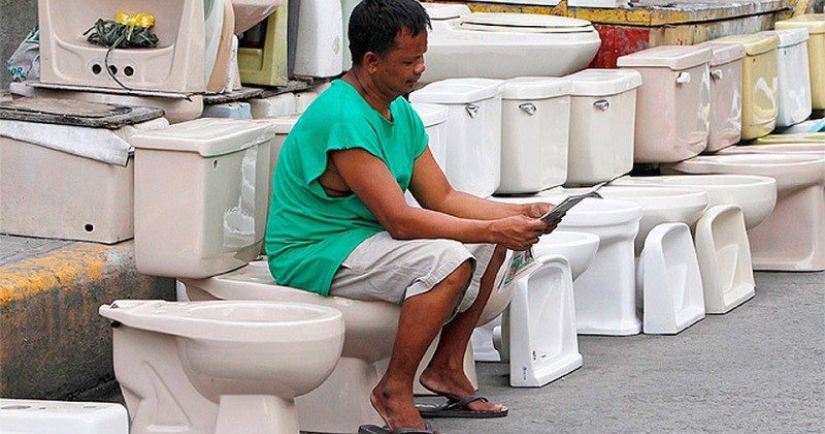
Pundits from the University of British Columbia, who are engaged in research in the field of psychology, pointed out one serious and very old mistake to Western society back in 2010. It turns out that when conducting research in the field of the same psychology, experts from a number of large scientific centers rely primarily on data obtained in a Western society that is relatively enlightened, well-off and relying on Christian norms.

This also applies to other spheres of society — we console ourselves that we live as we should and that we are in the majority, but the rest of the world looks at us as a bunch of madmen and sometimes openly makes fun of our customs and preferences.
During one of his performances in the UK, the Egyptian comedian Bassem Youssef joked as follows:
At the same time, the comedian waved a fake plumbing part, which is called a shattaf. This is a hose with a tap that is controlled by pressing a finger and is used in many Muslim countries and India for washing after the toilet.
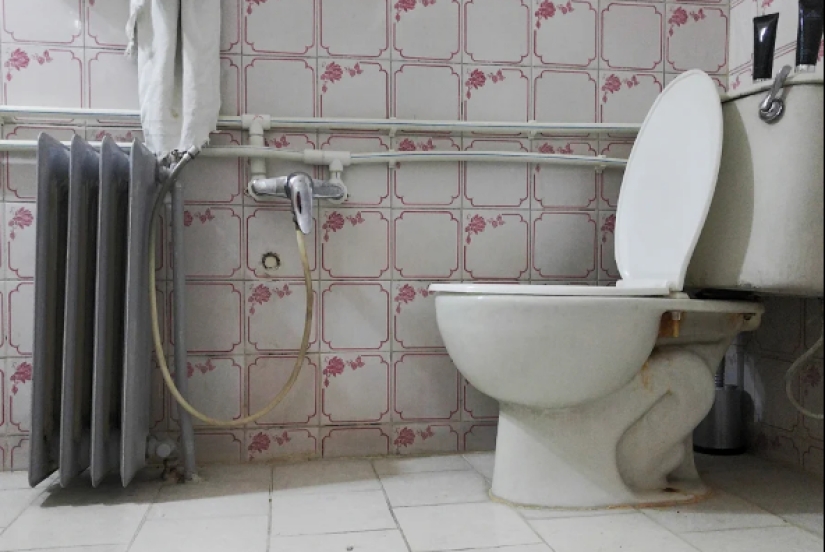
This is so, the habit of wiping oneself with toilet paper, which is absolutely natural for us, does not find any logical explanation among the inhabitants of North Africa, as well as the Middle East and The Middle East. They are not surprised by our hygiene rules for nothing. It is quite obvious that water cleanses much better than the highest quality toilet paper.
Despite the fact that progress is evident and we no longer use fragments of ceramics like the ancient Romans and ears of corn, like the native inhabitants of America, it is impossible not to admit that water is still more pleasant and better, in terms of the final result.
It is interesting, but the habit of washing is characteristic not only for the countries of the East. The use of water in the toilet is absolutely natural for quite European Finns residents of Argentina living in the Western Hemisphere. But France, which gave the world a bidet and was also once massively washed, gradually abandoned this hygienic habit and now it is practiced mainly by emigrants from Africa and the Middle East in this country.
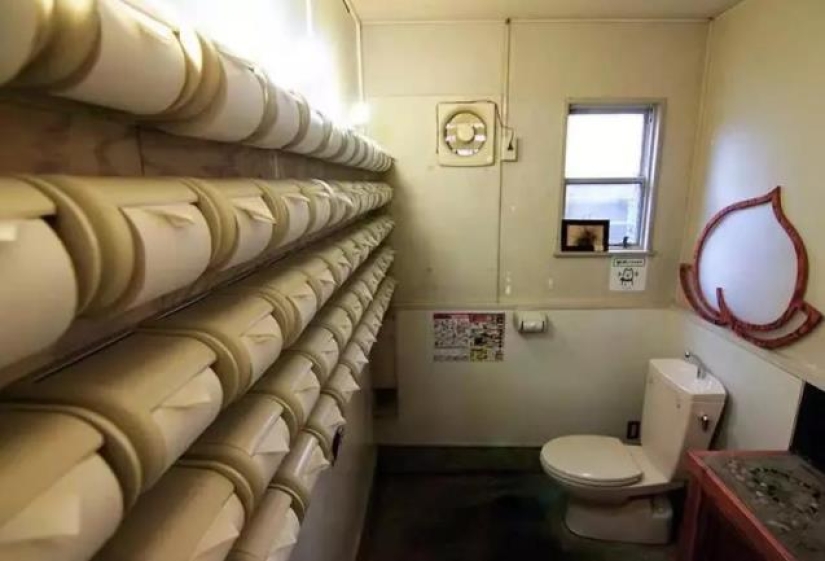
Architectural historian Barbara Penner in her book "The Toilet Room" notes that the trendsetters of Western toilet fashion are the United States and Great Britain, where the most devoted supporters of toilet paper live. Anglo-American toilet trends were massively planted all over the world and in the 20s of the last century there was even such a term as "sanitary imperialism".
Part of the world resisted this onslaught and, first of all, the Muslim countries preserved their traditional customs. This was due to the fact that Islam prescribes purification only with water. However, exceptions are sometimes made to the rule.

There are also special cases of reconciliation between the East and the West. It was about such an unusual symbiosis that an employee of the Australian government, Zul Othman, once told reporters. The official, relying on his own observations, said that some Muslims of the country, especially adapted to the Western way of life, use toilet paper, and then they still wash themselves from a jug or with a bidet.
Sometimes, on the contrary, an amazing steadfastness of views is noted. Asta Garg, a well-known Indian analyst who has been working for the past few years in San Francisco, could not find the usual jugs with an elongated spout in any office, hotel or public toilet. To purchase the necessary toilet accessory, the woman had to look for a store of her fellow countrymen who have not lost their authenticity.
Australian Zul Othman recalled a case of loyalty to principles on the part of a person from the Western world. One day, an acquaintance of his from Sheffield, England, when the toilet ran out of toilet paper, used a 20-pound banknote instead.

Emigrants from China to the United States, first of all, are struck by the scale of the use of toilet paper. This is not surprising, because according to statistics, it is Americans who consume the most paper per capita in the world.
Asta Garg was also amazed at how much toilet paper is used in America. It also seemed strange to her that in most cases, used paper is simply thrown into the toilet. Asta believes that every fourth toilet in the United States is clogged, as it is simply filled up from morning to night with this hygienic product.
In ancient China of the Han era (206 both methods were practiced in everyday life, but if we talk about public latrines, they were designed only for "squatting" use. Currently, two-thirds of the world's population use this ancient, proven method. And only in the West, people persistently climb on a faience pedestal, ignoring the opinion of doctors that everything goes more naturally and effectively without it.
The "squatting" pose solves an important hygiene problem. The survey showed that the majority of British women in public toilets are forced to resort to a variety of tricks in order not to accidentally touch the seat. The "squatting" pose immediately solves this problem.
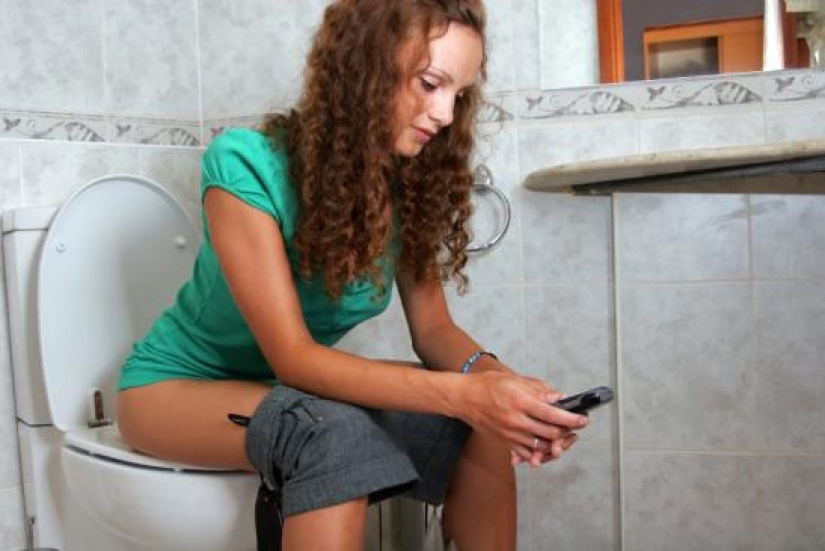
From the point of view of human anatomy, it is also better to do without a toilet, because sitting on your own legs, a person relieves tension from the intestines and muscles responsible for the process itself.
But in the United States, sitting on the toilet has become not just a way to empty the intestines, but a real form of leisure. The American book market is filled with special literature, in the form of small books with short stories that are simply created for reading on the toilet. The Chinese do not understand this, since their families teach them from early childhood that prolonged sitting in the toilet causes hemorrhoids and other health problems.
But how do those who are used to doing their business in a "squatting" position get out of the situation, but there is a standard toilet in their place of residence? An elegant way to solve the problem was suggested by the rock musician Kaiser Kuo, who moved from China came to the United States a few years ago.

In his family, it is customary to place a small bench near the toilet to put your feet on it. This position of the body, although it is not able to completely replace defecation on squats, but it is as close as possible to the natural position of the body. This is not the know-how of the Kaiser family — several companies already produce such toilet benches in the United States and their business is booming.
In some countries, for example, in Malaysia, it is customary to give toilet visitors a choice. There are both ordinary toilets and booths for lovers of traditions. As a rule, there are still more places with toilets — there are about two-thirds of them in public toilets. At the same time, preference is given not to toilet paper, but to water.
Representatives of different cultural traditions also bathe in different ways. The European and American habit of taking a daily shower in the morning is very strange. This is the opinion of Elizabeth Shove, a sociologist from Lancaster University, Great Britain.
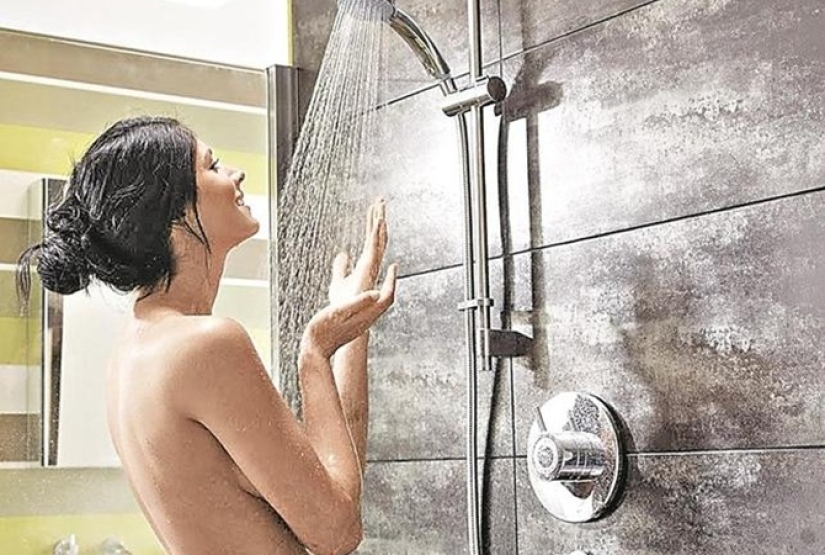
The appearance of this habit was seriously affected by the post-war soap boom, when advertising of this hygiene product bothered people from all sides. Soap operas got their name exactly in the 50s of the XX century, due to the fact that too many such ads were inserted into them.
Then there was a fashion to use different soaps for the face, body and washing. This subconsciously forced people to wash more often, regardless of whether it was necessary or not.
In many countries, even in the XXI century, the problem of water for household needs is very acute and people do not have the opportunity to wash more often or simply save water that is too valuable for them. Although scientists believe that it's not just about the availability of water.

In Malawi, where water is quite a valuable resource, it is customary to pour out of a bucket or basin several times a day. Residents of Ghana, the Philippines, Colombia and Australia — not the most water-rich regions of the planet, also take a shower several times a day. However, it must be said that such bathing is rarely associated with shampooing.
There is one important nuance here — pouring and a full-fledged shower are completely different, in terms of water consumption, procedures. A shower, due to high pressure, is less economical than dousing the body from a container. The hot climate is especially conducive to frequent washing. For example, in Brazil, local residents swim several times a day, even in winter, when the heat is not the strongest.
Scientists believe that in countries with a temperate climate, a regular morning shower is not a practical necessity, but a tradition that allows you to clearly structure the day. It is also believed that a shower makes a person more presentable. In the modern world, this is hardly relevant, since very few work in such a way that they actually need constant washing.
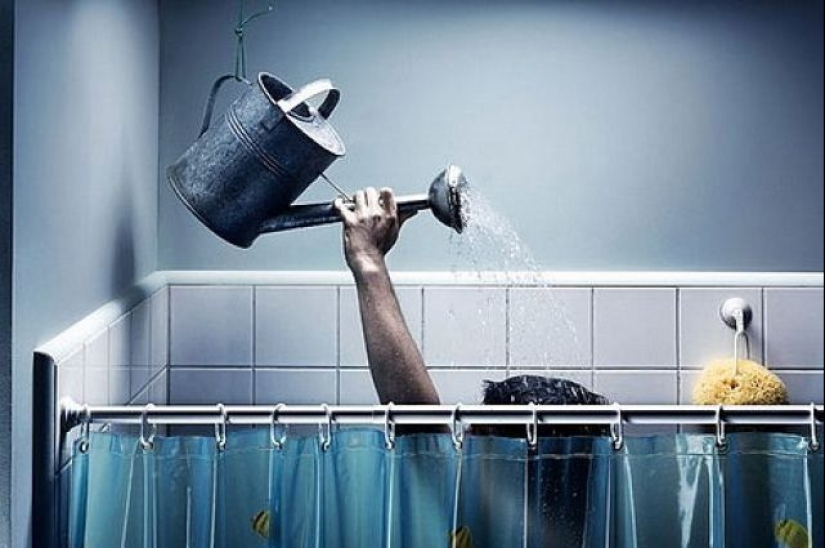
It is quite another thing that a cool morning shower invigorates and helps to tune in to a working mood, and an evening, warm, as well as a hot bath, helps to relax and fall asleep faster.
Different countries have different customs and it is also important that they are constantly changing. There is no guarantee that in a decade it will not become fashionable to take care of water resources and, in order to save money, they will take a shower once a week. No one is immune from the fact that taking advantage of the achievements of another toilet culture on a foreign trip, he will not decide to give up toilet paper when he returns home, or, on the contrary, will not throw away his jug with a spout.
Keywords: Water supply | East | Shower | Psychology | Toilet | Toilet paper | Toilet bowl
Post News ArticleRecent articles

It's high time to admit that this whole hipster idea has gone too far. The concept has become so popular that even restaurants have ...

There is a perception that people only use 10% of their brain potential. But the heroes of our review, apparently, found a way to ...
Related articles

Celebrity of the past with towels on their heads photographed as if by chance… but in fact such shootings, many of them long ...

In addition to decent women and prostitutes, for many centuries there was a third, special kind of ladies-courtesans. In Europe, ...

It is known that Jews have been living on the territory of Russia, Ukraine and Belarus since time immemorial. Surprisingly, the ...

New Year's is a time to surprise and delight loved ones not only with gifts but also with a unique presentation of the holiday ...